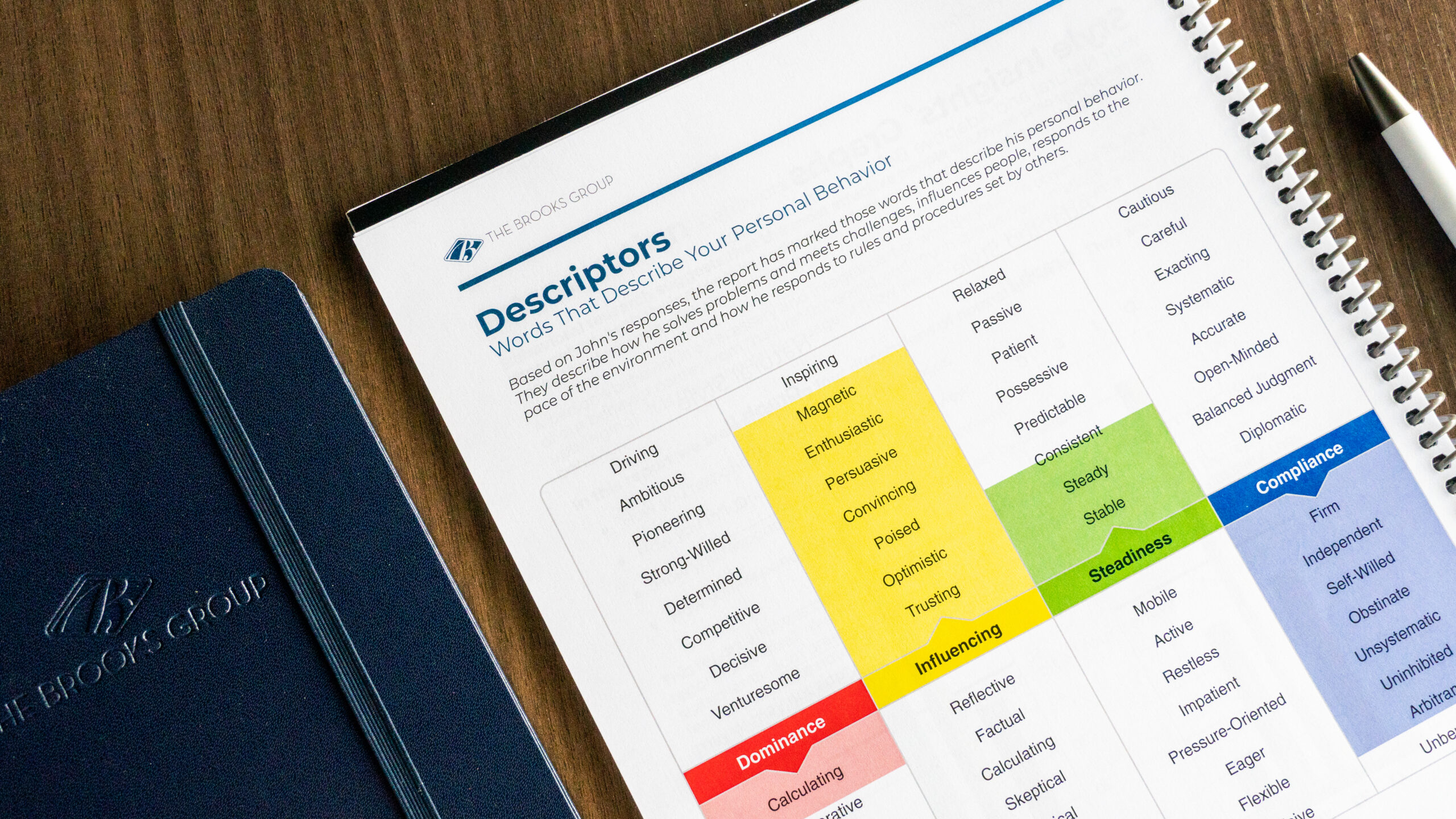The DISC personality assessment has become a popular tool for understanding behavior and communication styles. For sales teams, understanding each sales professional’s personality can help align strengths and weaknesses to create a high-performing sales force.
Savvy sales managers are using the sales-specific DISC profile to redefine team dynamics, improve sales training, and build a stronger, more agile, and result-driven sales team.
Understanding Personality Types
DISC is based on a theory published in 1928 and is used by over 1 million people every year.
The name is an acronym that stands for the four main personality profiles in the DISC model: (D)ominance, (i)nfluence, (S)teadiness and (C)ompliance.
How does DISC help sales professionals? Have you ever worked with someone who gets on your nerves? Maybe they ask a lot of questions—too many in your mind. Or the opposite—they want to rush a project forward without having all the details.
It may simply be a situation of contrasting personality types. If you understood your colleague’s preferences, you might communicate differently and be able to work together more easily.
This is true no matter whether it’s a one-on-one situation or an entire team. Building a high-performing sales team requires more than just industry knowledge and a persuasive style.
These days you need every advantage to maximize revenue potential and outperform competitors. The secret may lie in harnessing the power of personality tests to unlock the true potential of each current sales team member and new sales hires.
Leveraging the Power of DISC Profiles
By leveraging the power of DISC profiles, sales managers can unlock their sales team’s true potential, create a cohesive and productive unit, and elevate their overall performance in the competitive market. Here are 12 recommendations for sales managers.
1. Conduct DISC Assessments
Begin by administering DISC assessments to all team members. This will provide valuable insights into each individual’s dominant personality traits (D, I, S, or C) and help identify communication styles, strengths, and areas for development.
2. Encourage Self-Awareness
Emphasize the importance of self-awareness among your sales team members. Encourage them to reflect on their DISC profiles and understand how their natural tendencies influence their interactions with customers and colleagues.
3. Adapt Communication Styles
Train your sales team to adapt their communication styles to align with the preferences of their customers. A high D customer might appreciate a direct, results-oriented approach, while an S customer may prefer a more empathetic and relationship-focused interaction.
4. Address Team Dynamics
Utilize DISC profiles to map out your team’s dynamics and identify potential areas of complementarity or conflict. Pair individuals with different styles for peer coaching and mentorship, fostering a collaborative and supportive environment.
5. Tailor Sales Training
Tailor your sales training programs based on the DISC profiles of your team members. Design activities and exercises that resonate with their preferred learning styles, whether it’s faster-paced and more interactive for Ds and Is or more individual-focused for Ss and Cs.
6. Manage Change
Recognize that different personalities respond differently to change. Use DISC insights to communicate and manage changes effectively, whether it’s introducing organizational updates or implementing process improvements.
7. Deliver Sales Coaching
Pair up team members with different styles for sales coaching and peer support. If you’ve got a salesperson who’s great at opening new accounts or prospecting—maybe they’re high D, and not as strong with details, administration, or servicing—pair them with a S or C.
8. Introduce New Products
Take personality types of each team member into account when rolling out new products. Ds and Is will quickly embrace the opportunity to promote a new offering, while Ss and Cs may need more time and information.
9. Align Sales Territories
Consider aligning sales territories based on the natural inclinations of your salespeople. Assign tasks that play to their strengths; for instance, Ds and Is might excel at prospecting, while Ss and Cs might be more effective in nurturing existing accounts.
10. Promote Cross-Functional Teams
Assemble cross-functional teams with representatives from all DISC styles. This diversity will result in a well-rounded perspective, making problem-solving and decision-making more robust.
11. Maximize Customer Relationships
Train your sales team to recognize and adapt to their prospects’ DISC styles during sales interactions. Understanding customers’ preferences and communication styles builds rapport and trust, fostering stronger relationships.
12. Debrief DISC Assessments as a Group
When introducing DISC to your team, ensure the skills assessments are debriefed collectively to promote open dialogue and shared understanding. This approach reinforces the constructive nature of the exercise and encourages team members to support one another’s growth.
The Power of Self Awareness in Sales
Self-awareness is one of the most powerful tools a salesperson or a manager can have. When a person is self-aware, they can counteract or complement their natural tendencies to build rapport with prospects, reduce conflict, and communicate more effectively with customers, peers, and team members.
The Brooks Talent Index DISC assessment is a powerful tool for sales managers rolling out new products, training, managing change, or onboarding new hires. Better communication and insight will help you build a high-performing team.
Learn More
Leverage 45+ years of The Brooks Group assessment experience to ensure you have the right talent on your sales team.




